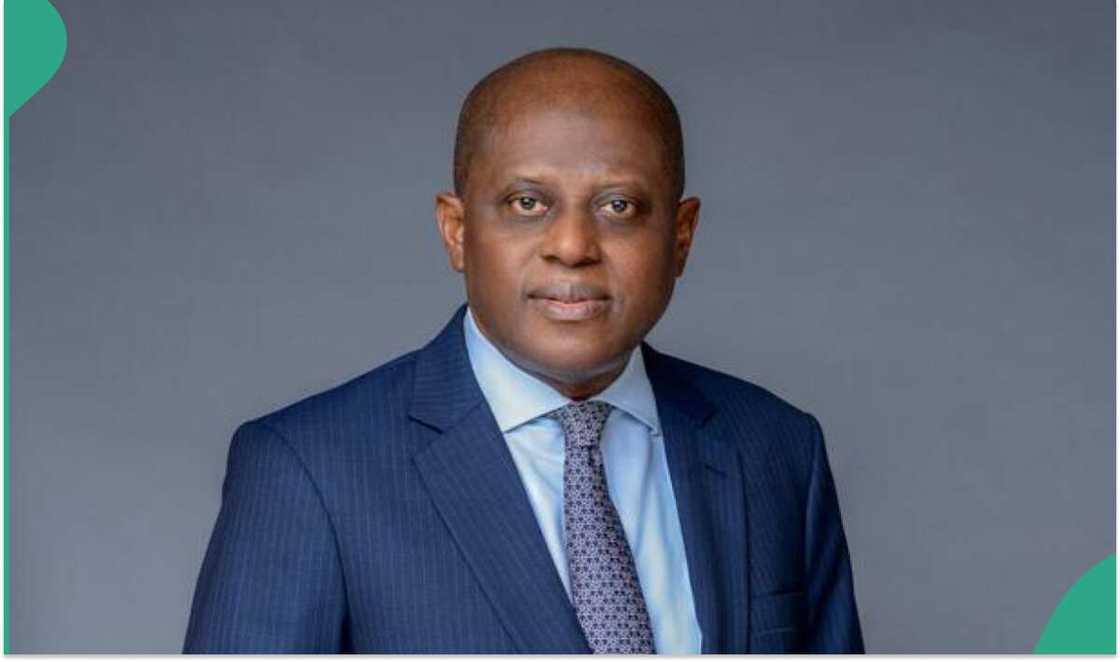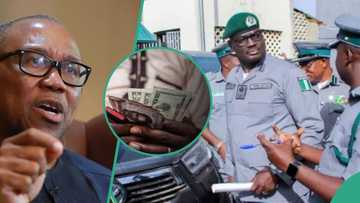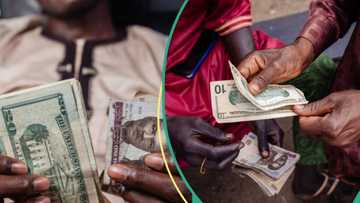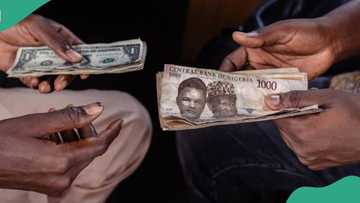CBN Says Nigerians Keep N3.43trn at Home as Cost of Living Spikes
- CBN data has shown that the total money in circulation outside banks in 2024 hit N3.65 trillion from the previous year's N3.28 trillion
- This showed a 314% increase in the total money held by Nigerians from N792 billion in 2023 to N3.28 trillion in 2024
- This occurred amid a report that the country's annual inflation rate reached 29.90% in January 2024 as the naira depreciated
PAY ATTENTION: The 2024 Business Leaders Awards Present Entrepreneurs that Change Nigeria for the Better. Check out their Stories!
Legit.ng journalist Zainab Iwayemi has over three years of experience covering the Economy, Technology, and Capital Market.
A report released by the Central Bank of Nigeria (CBN) has shown that as of January 2024, currency outside banks marginally declined to N3.28 trillion, representing 89% of the N3.65 trillion total currency in circulation (CIC).

Source: UGC
According to ThisDay, a Year-on-year (YoY) analysis comparing January 2023 and January 2024 revealed an astounding 314% increase in money outside of banks, from N792 billion in 2023 to N3.28 trillion in 2024.
The report showed an improved currency ratio outside banks compared to currency in circulation at 94% in December 2023.
PAY ATTENTION: Click “See First” under the “Following” tab to see Legit.ng News on your Facebook News Feed!
This means there was N3.43 trillion currency outside the bank out of the N3.65 trillion total currency in circulation as of the period in December 2023.
Similarly, the currency in circulation increased in one year by 163% from January 2023 to record N1.38 trillion as against the January 2024 recorded N3.65 trillion.
Currency outside banks increases
According to a breakdown of money held outside of banks during that time, it began the month of January at a low of N792 billion and increased marginally to N843 billion in February. In March, this was reversed, leading to an increase to N1.45 trillion.
A steady increase was observed in the following months, reaching N2.07 trillion in April, N2.18 trillion in May, N2.26 trillion in June, and N2.21 trillion in July.
August 2023 saw stability at N2.22 trillion, rising to N2.42 trillion in September, N2.7 trillion in October, and then continuing on an increasing trajectory to N3.08 trillion in November 2023.
The peak for both money in circulation and money held outside of banks was reached in December 2023, when 94% of all money was held outside of banks by CIC.
The Nigeria Bureau of Statistics (NBS) recently reported that the country's annual inflation rate reached 29.90% in January 2024 as the naira depreciated in the official and black markets.
The Consumer Price Index report by NBS indicated that prices increased by 0.98% to 29.90% in January 2024, compared to N28.92% in December 2023.
What this means
Charles Abuede, a financial analyst explained that the significant increase in currency in circulation, as indicated by the recent Central Bank of Nigeria (CBN) data, highlights a notable surge in the amount of physical currency within the economy over the span of one year.
He opined that such a substantial rise suggests several potential implications.
He said,
"First is the issue of inflationary pressures: A rapid increase in currency in circulation can be indicative of inflationary pressures within the economy. When there is an abundance of money circulating, it often leads to higher demand for goods and services, which can, in turn, drive prices upward.
"Another issue should be monetary policy considerations: The CBN may need to reassess its monetary policy stance in response to such a significant expansion of currency in circulation which might involve implementing measures to manage inflation, stabilize the currency, or regulate the money supply to maintain economic stability.
He added that a surge in currency in circulation could also signify increased economic activity and liquidity within the economy as businesses and consumers may be transacting more frequently, leading to higher cash flow and liquidity.
"And then, it could also mean that there is a changing consumer preference or behaviours, including a preference for cash transactions over electronic payments or a lack of confidence in alternative forms of payment. This is simply to say there’s consumer confidence in physical hold of cash for economic reasons than savings in the bank."

Read also
“Businesses are dying”: Peter Obi speaks as customs announces new exchange rate for cargo clearance
CBN's Cardoso speaks as naira nears N1,700/$
Legit.ng also reported that the governor of the CBN, Olayemi Cardoso, described his job as the second most difficult in the world.
Cardoso, who has been at the helm of the CBN for eight months, spoke at the opening of the 2024 first plenary assembly of the Catholic Bishops Conference of Nigeria (CBCN).
In his speech, he also addressed the Nigerian economy's challenges and the efforts taken so far to stabilise the naira, Punch reports.
PAY ATTENTION: Stay Informed and follow us on Google News!
Source: Legit.ng





